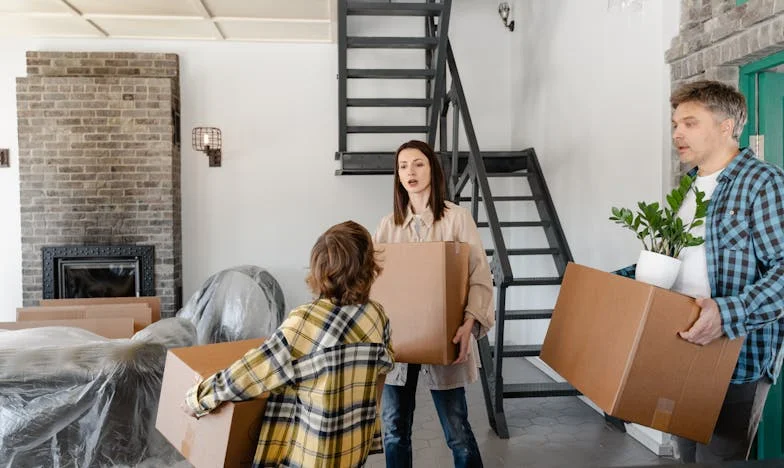Echoes in a Small Town: A Family Reckoning
“Grandma, can I bring someone over for dinner tomorrow?” Ben’s voice crackled through the old landline, breaking the soft hum of my kitchen. My hands, sticky with flour from rolling out biscuits, trembled just a bit. It wasn’t like Ben to call, not these days. The clock in our hallway ticked louder, matching the thud of my heart.
“Of course, honey. Is everything alright?” I tried to sound breezy, even though my bones ached with worry. There was a pause—too long, too heavy.
“Yeah, it’s just… I’ll explain tomorrow, okay? Love you.” The line clicked off. I stared into the dimming light beyond my kitchen window, the world outside painted in the bruised blue of dusk. Something was coming. I could feel it in my bones, the same way I used to feel thunder rolling in before a storm.
In Willow Creek, our town of 3,000 souls, news travels faster than the river floods in spring. People notice when someone’s car sits too long outside a house, or when a stranger walks Main Street. And people remember—oh, how they remember. Old hurts, old names, old feuds.
I told Frank, my husband, about Ben’s call as we sat at the kitchen table, plates of meatloaf growing cold. He grunted, “Probably just wants money again.”
“He doesn’t sound like he’s in trouble. He just… sounded scared.”
Frank’s eyes, faded blue like river glass, narrowed. “He’s a grown man now, Martha. He can handle himself.”
But could he? I thought of Ben as a boy, chasing fireflies under the oaks, his laughter ringing out over the summer lawns. How did those years slip through my fingers so quickly?
The next day, I woke before dawn, nerves prickling under my skin. I busied myself—roast chicken, mashed potatoes, Ben’s favorite cherry pie. The house filled with the smells of cinnamon and roasting meat. Frank sat in his armchair, pretending to read, but I saw the way his eyes lifted at every car that passed by.
At six o’clock, headlights swept up the drive. I wiped my hands and smoothed my hair. Ben stepped out, taller than I remembered, but thinner too. He wore a nervous smile. And beside him—
A girl. Young, maybe twenty, with dark eyes and skin the color of rich coffee. She glanced at our porch with her shoulders squared, bracing against something invisible.
“Grandma, Grandpa—this is Amina.” Ben’s hand found hers, fingers laced tight. “My girlfriend.”
Frank’s mouth pressed into a line. I managed a smile, but my mind spun with questions.
Amina’s voice was soft but clear. “Thank you for having me, Mrs. and Mr. Walker.”
We sat. Small talk fluttered and died. Frank asked Ben about his job at the hardware store. I asked Amina about college—she was studying biology, wanted to be a doctor. The air was thick with things unsaid.
Over dessert, Frank’s voice cut through the silence. “So where’s your family from, Amina?”
Amina answered, “My parents are from Somalia, sir. We moved here when I was six.”
Frank grunted. “A long way from Willow Creek.”
Ben’s hand tightened on hers. “Amina’s more American than I am, Grandpa.”
Frank’s eyes hardened. “I just mean, people have a hard time fitting in here.”
Amina’s chin lifted. “I know.”
The rest of the meal passed in brittle politeness. When Ben and Amina left for a walk, I found Frank in the den, staring at the wall.
“Why are you like this?” I whispered, my voice breaking. “He loves her.”
Frank didn’t look at me. “This town remembers, Martha. People talk. It’s not easy for them.”
“It’s not easy for anyone. But don’t make it harder.”
He looked so tired then, older than I’d ever seen him. “I just don’t want him to get hurt.”
Neither did I. But hurt finds us all, doesn’t it?
Later, I found Ben alone on the porch, eyes glassy. “I’m sorry, Grandma. I just… I didn’t know how to tell you. Or Grandpa.”
I hugged him, feeling his shoulders shake. “Ben, you deserve to be happy. Don’t let this town decide who you love.”
Amina stepped out, her eyes wary, searching mine for judgment. I reached for her hand. “You’re welcome here. Don’t let anyone make you feel otherwise.”
She smiled then, a small, grateful thing. For a moment, the night felt lighter.
But when they left, I found Frank pacing. “You really think this is going to work? They’re going to have a hard life here.”
“Maybe,” I said, “but maybe that’s how things change. Someone has to start.”
That night, I lay awake, thinking of all the stories buried in Willow Creek—the ones never told, the ones we tried to forget. How many lives had we made smaller because we were afraid? How many chances for love had we missed?
Sometimes, I want to ask the world: Why do we let fear decide who belongs? If my own family can’t open their hearts, what hope is there for the rest of us?
Maybe it starts with one dinner, one hard conversation. Maybe it starts with me.
